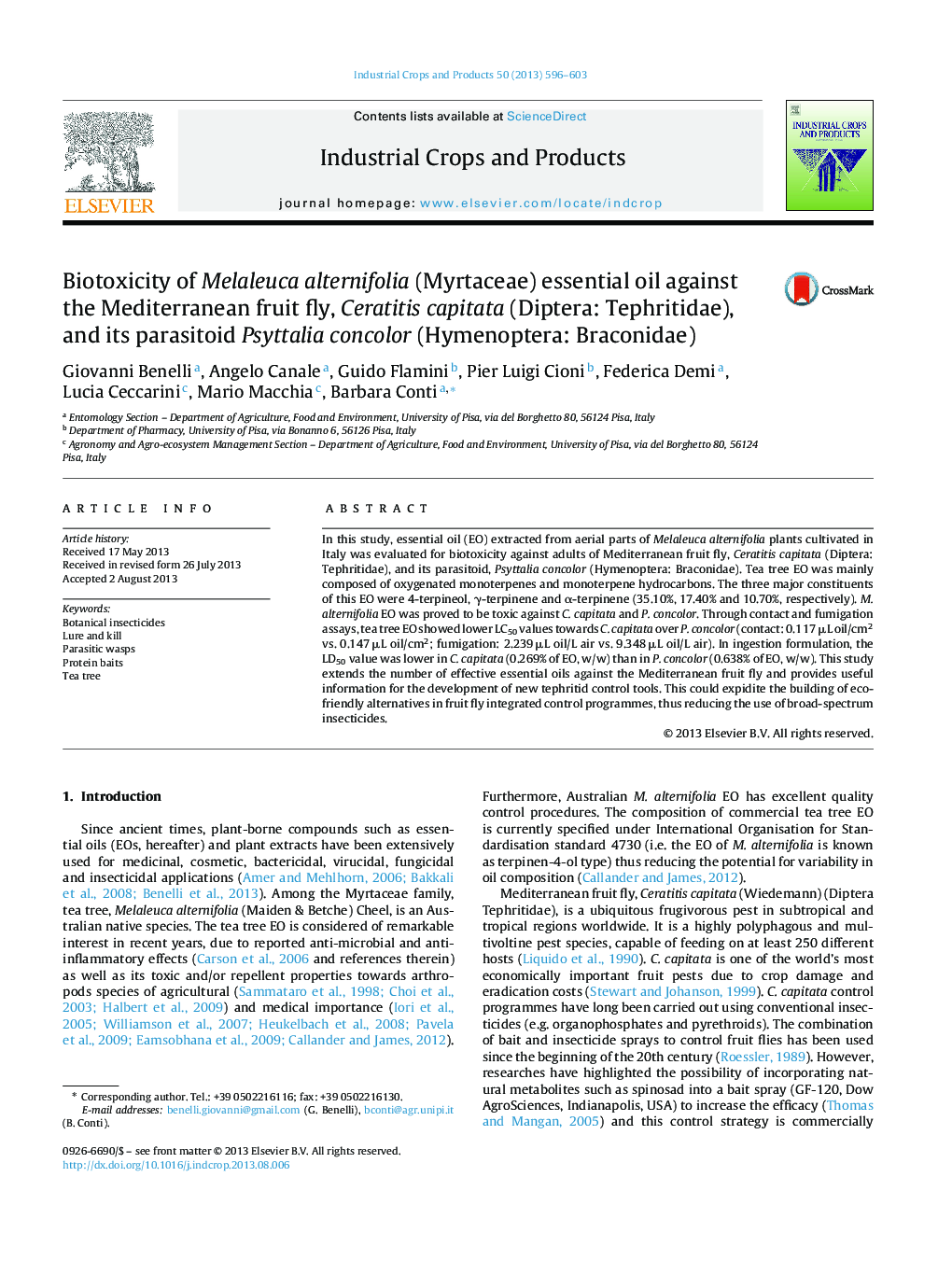| Article ID | Journal | Published Year | Pages | File Type |
|---|---|---|---|---|
| 6376942 | Industrial Crops and Products | 2013 | 8 Pages |
Abstract
In this study, essential oil (EO) extracted from aerial parts of Melaleuca alternifolia plants cultivated in Italy was evaluated for biotoxicity against adults of Mediterranean fruit fly, Ceratitis capitata (Diptera: Tephritidae), and its parasitoid, Psyttalia concolor (Hymenoptera: Braconidae). Tea tree EO was mainly composed of oxygenated monoterpenes and monoterpene hydrocarbons. The three major constituents of this EO were 4-terpineol, γ-terpinene and α-terpinene (35.10%, 17.40% and 10.70%, respectively). M. alternifolia EO was proved to be toxic against C. capitata and P. concolor. Through contact and fumigation assays, tea tree EO showed lower LC50 values towards C. capitata over P. concolor (contact: 0.117 μL oil/cm2 vs. 0.147 μL oil/cm2; fumigation: 2.239 μL oil/L air vs. 9.348 μL oil/L air). In ingestion formulation, the LD50 value was lower in C. capitata (0.269% of EO, w/w) than in P. concolor (0.638% of EO, w/w). This study extends the number of effective essential oils against the Mediterranean fruit fly and provides useful information for the development of new tephritid control tools. This could expidite the building of eco-friendly alternatives in fruit fly integrated control programmes, thus reducing the use of broad-spectrum insecticides.
Related Topics
Life Sciences
Agricultural and Biological Sciences
Agronomy and Crop Science
Authors
Giovanni Benelli, Angelo Canale, Guido Flamini, Pier Luigi Cioni, Federica Demi, Lucia Ceccarini, Mario Macchia, Barbara Conti,
